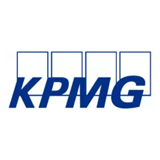As a Credit Risk Professional within Uniqus's Risk team, part of the Accounting and Reporting Consulting service line, you will play a key role in supporting the Partner/Director of the Risk team. Your primary focus will be on the development and execution of engagements related to credit risk model development and validation. The ideal candidate will possess a strong background in credit risk concepts, particularly around modeling (IFRS 9, IRB, Credit Models, etc.) and model validation.
Key Responsibilities:
Model Development & Enhancement:
- Develop and implement advanced quantitative models for assessing credit risk, including models for PD (Probability of Default), LGD (Loss Given Default), and EAD (Exposure at Default).
- Work with large datasets to develop models that accurately estimate credit risk exposure, focusing on accuracy, robustness, and predictive power.
- Design and refine models to calculate Expected Credit Loss (ECL) under IFRS 9 and CECL frameworks, ensuring full compliance with accounting and regulatory standards.
- Continuously monitor and enhance existing models based on new data, evolving market conditions, and regulatory changes.
Model Validation & Backtesting:
- Validate and rigorously backtest credit risk models, ensuring they meet the required standards for accuracy, consistency, and reliability.
- Develop robust validation frameworks for assessing model performance and ensuring models accurately reflect credit risk under diverse economic conditions.
- Provide comprehensive documentation of model assumptions, methodologies, and limitations, ensuring transparency and compliance with internal governance and regulatory requirements.
- Conduct periodic performance reviews and backtesting of models to ensure their continued strong performance over time and alignment with actual credit losses.
Expected Credit Loss (ECL) Modeling:
- Lead the development of ECL models, accurately calculating the credit loss provisions for financial instruments in line with IFRS 9 or CECL.
- Develop robust methodologies for estimating PD, LGD, and EAD at a granular level (e.g., loan type, sector, region), while effectively incorporating macroeconomic factors.
- Collaborate with accounting, finance, and credit risk teams to seamlessly integrate ECL models into the firm's risk management and financial reporting processes.
- Ensure that ECL models reflect appropriate segmentation of portfolios and the accurate application of relevant adjustments for forward-looking information.
Credit Risk Stress Testing:
- Lead the design and execution of credit risk stress testing processes to assess the resilience of credit portfolios under extreme but plausible scenarios.
- Develop and implement stress testing models for key credit risk metrics such as PD, LGD, and EAD under different macroeconomic and market scenarios.
- Collaborate with other risk teams to define relevant stress test scenarios, including both regulatory scenarios (e.g., CCAR, EBA) and internal stress scenarios.
- Analyze stress test results and present findings to senior management, providing actionable insights on portfolio risk, capital adequacy, and mitigation strategies.
Requirements:
Qualifications:
Education:
Master's or PhD in Quantitative Finance, Financial Engineering, Mathematics, Statistics, or a related field. Professional certifications (e.g., CFA, FRM) are a plus.Experience:
- Minimum of 3-5 years of experience in quantitative risk modeling, with a strong focus on credit risk, including PD, LGD, EAD models, and stress testing.
- Proven experience with the development and validation of ECL models under IFRS 9, CECL, or similar regulatory frameworks.
- Hands-on experience with credit risk stress testing methodologies and model implementation.
- Strong background in working with large financial datasets and applying statistical modeling techniques to assess and manage risk.
Technical Skills:
- Proficiency in programming languages such as Python, R, MATLAB, or SAS for model development and data analysis. Candidates with proficiency in VBA, Python, and SAS will be preferred.
- Strong experience with data analysis tools (e.g., SQL, Excel, Hadoop, Spark) and machine learning libraries (e.g., scikit-learn, TensorFlow).
- Familiarity with credit risk management platforms (e.g., Moody's, S&P, Bloomberg) and risk analytics tools.
- Strong understanding of financial statements, credit ratings, and macroeconomic factors influencing credit risk.
















